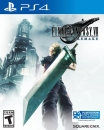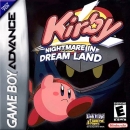Nautilus said:
Did it really last 10 years?When did Crystal Chronicles launch?Because as far as I remember that title was thought to be the game that healed Nintendo and Square relationship. |
Crystal Chronicles came out in 2003 in Japan, 2004 in the US (published by Nintendo of America.) It was made through a Square shell company called The Game Designers' Studio, which was funded in part by Hiroshi Yamauchi as a peace offering to Square.
Final Fantasy Tactics Advance came out in February 2003 in Japan and released later that year in the US. So that's about 9 years after Final Fantasy VI released, 7 years after Chrono Trigger, and just under 7 years after SMRPG. Sword of Mana also released in 2003, and was jointly developed by Brownie Brown, a Nintendo subsidiary founded by former Square staffers. As with CC, Nintendo handled publishing outside of Japan for these games. Square had also begun to port the earlier Final Fantasy games to the Game Boy Advance by then. So since these games didn't happen overnight, you have to figure that Square and Nintendo had begun talking again by 2002, perhaps earlier. My opinion is that there probably was always some hesitant communication between the two even during the worst of the Square-Nintendo feud.
Also by that point, Square was Square Enix, and technically, the Square half didn't exist anymore. When the "merger" happened, Square stockholders got .81 shares of Square Enix for every share of Square, while Enix stockholders got full 1:1 value for their shares. It was technically a buyout of the smaller, weaker Square by the much bigger, stronger Enix.
Unlike Square, Enix still maintained friendly relations with Nintendo, and Nintendo actually treated Enix as equals, which was something no other third party ever saw from Nintendo, not even Square. Dragon Quest was, and continues to be, a bigger seller than Final Fantasy in Japan, while Nintendo has returned the favor by continuing to localize and publish Dragon Quest in the US even despite less-than-stellar sales. Enix released a couple of N64 games (Wonder Project J2 and Mischief Makers) and continued to release games on the Game Boy, including the early Dragon Quest games. Once Square and Enix merged, it was probably a lot easier for Yamauchi to deal with Enix's leaders Yasuhiro Fukushima and Keiji Honda, who were now in ultimate authority of the new company, as well as Yoichi Wada, who didn't have the Squaresoft baggage from the PS1 era attached to him.
Last edited by SanAndreasX - on 13 April 2020

























































